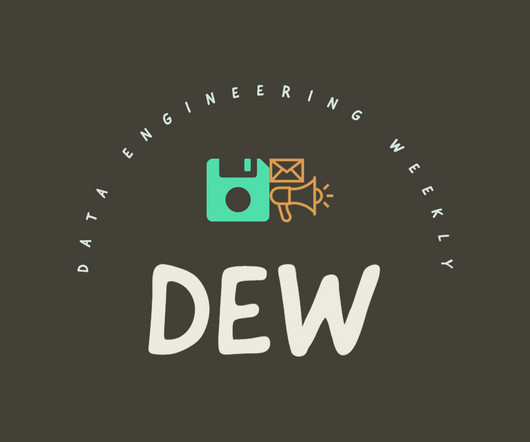Data Engineering Weekly #125
Data Engineering Weekly
APRIL 2, 2023
Meta: Presto - A Decade of SQL Analytics at Meta Presto and Kafka are the two systems that greatly impacted data infrastructure in the last decade. The model only determines the degree to which that maximum quality is realized; in a sense, the model is a lossy compiler for the data.













Let's personalize your content